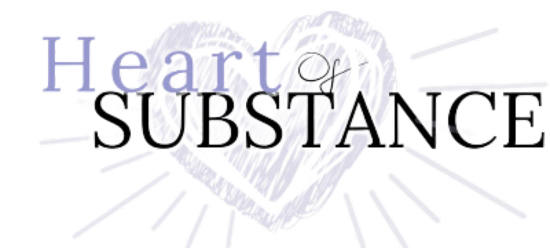If you find yourself often sensing things before they happen or picking up on subtle cues from the happenings around you, you may be highly intuitive.

You may display these intuitive signs
- You pick up on the emotions and feelings of individuals around you.
- You get strong gut feelings or hunches about people or situations, even if there is no logical explanation for it — You “just can’t put your finger on it” but you know something is not right.
- You are highly creative and imaginative and can think outside the box to come up with unique solutions to problems.
- You have a strong connection to nature or spirituality and you connect with what’s happening in the world on a deeper level. You connect with animals and birds.
If you identify with any of these signs, it’s possible that you have a highly intuitive way of thinking.
So, why does Intuitive Thinking matter?
Intuition matters because it can guide you in making important life choices, help you navigate complex situations with ease, and enhance your overall well-being. Trusting your intuition can lead to more meaningful relationships, increased creativity, and a greater sense of inner peace.
Intuitive thinking helps with quick decisions – you just know the right action in a time of urgency, for example.
Or, it helps you open doors to opportunities, important in today’s fast-paced society that requires thinking on your feet. This is especially important with the ever-changing demands of today’s society and its complicated market forces.
It is also relevant on a personal level for financial and relationship reasons.
Maybe you show signs of being highly intuitive…
My article about famous people displaying intuitive thinking will give you the best example of intuitive thinking that might resonate with you. Or, also check out my article on the wizards of intuitive thought if you think you share this quality or not.
Two ways of thinking
There are two ways of thinking that stand out in scientific literature:
- Analytical
- Intuitive
You might get stuck in using analytical thinking (or reasoning) in most situations because of our modern-day bias towards that. Whereas, society (Western society mostly) often dismisses intuition as “touchy-feely.”
Successful people like Steve Jobs, learn to listen to their intuition and gut feelings.
Steve Jobs rated it highly:
Intuition is a very powerful thing, more powerful than intellect, in my opinion. That’s had a big impact on my work.
Steve Jobs
You know the saying: I felt it in my bones. Or, it was just a hunch…a gut feeling. In turn, how do high flyers just ‘fly by the seat of their pants’?
Here is my take…
We go to school, and we are taught logic. By the way, this is a relatively new approach for humans compared to intuitive thinking.
Our schooling advances our analytical thinking — a focused and linear way of dealing with things. It prepares us for work and situations where explanations are required.
This is the thinking style that we’ve advanced — the one acknowledged by society to bring success.
Meanwhile, our intuition is left to develop through our experiences. We gravitate toward reasoning because that’s what we know. Though…some do embrace intuitive thinking. They learn to trust their intuition, ‘fly by the seat of their pants’, and seem to ‘just know’.
Intuitive thinking is an ability that’s critical and life-saving. Firefighters especially use it…
Intuitive thinking example in Emergency Situations
Intuitive thinking can be a powerful tool for emergency situations where you need to make rapid decisions based on limited information. For example, imagine a scenario where a firefighter arrives at a burning building and needs to quickly assess the situation to determine the best course of action.
In this scenario, the firefighter may use their intuition to make snap judgments about the severity of the fire, the potential risks to themselves and others, and the most effective methods for fighting the flames. This intuitive thinking may be based on their past experiences, training, and instincts, allowing them to quickly and accurately assess the situation and take appropriate action.
For instance, a firefighter may intuitively recognize the sound of a collapsing roof and quickly evacuate the area, potentially saving lives. Alternatively, they may intuitively sense that a particular fire is too dangerous to tackle head-on and instead opt for a more strategic approach, such as cutting off the source of the fire or creating a firebreak to contain the flames.
An analogy as example of intuitive thinking
Charles B. Parselle, a professional in dispute resolution used the anatomy of our eyes to exemplify intuitive thought.
He likened intuitive thinking to the cells of our eyes that provide our peripheral vision and analytical thinking to the cone cells at the very center of our cornea, which we use to focus on objects, both far and near.
He explained how “it is much easier to get around with only peripheral vision than with only focused vision”. If the cone cells deteriorate we get a black spot in the center of our view when we focus on an object. However, if the peripheral vision were to vanish, our view of the observed world would narrow to the size of a speck.
What you can take from this…intuition offers us a broader outlook and serves us better than analytical thinking alone.
Rational mind Limitations
We consistently overestimate the value of analytical thinking in our decision-making, according to Daniel Kahneman, Nobel laureate.²
The rational mind doesn’t nourish you. You assume that it gives you the truth, because the rational mind is the golden calf that this culture worships, but this is not true. Rationality squeezes out much that is rich and juicy and fascinating.
Anne Lamott, (in Bird by Bird: Some Instructions on Writing and Life)
We reach crossroads at times with multiple ‘best’ options or inconclusive answers from our rationale.
Without ‘just knowing’ where to go next, our mind will start overthinking.
As I wrote in my article about rational mind vs intuitive mind, successful people often accredit their achievements to listening to their intuition over their rational mind.
Limited thinking, such as this, cripples us.
It kills our confidence and creates anxiety and worry.
Intuitive person traits
Let’s use Napoleon for an example of intuitive thinking.
When Napoleon dominated the European battlefield he incorporated more than just strict planning. How he used his intuition is explained in Napoleon’s Glance: The Secret of Strategy.
His traits involved the ability to stay calm and collected, not overthink, but most significantly, to use fast thinking, which involves computing all information simultaneously.
There are similar examples of success using intuition described by Malcolm Gladwell’s Blink: The Power of Thinking Without Thinking. This is an easy-to-read, easy-to-understand resource that draws on cutting-edge neuroscience and psychology with the prime aim of teaching you how to make better snap decisions. Gladwell refers to the origins of this ‘just knowing’ (or intuition) as the adaptive unconscious and likens it to our internal computer.
How To Access Your Intuition
Back to Napoleon’s secret as an example of how intuitive thinking works. It involves 4 steps.
#1 Recognizing patterns from experience and learnings
This is fast thinking; so fast it seems like you are not thinking at all.
The key feature here is that all the information is computed in parallel, not sequentially.
Compare this to slower rational thinking, where you examine thoughts one by one.
When optimized your intuitive mind is like a super-fast computer sorting through files to bring you the answers. The ‘files’ may be patterns and images stored deep.
- Using the best available understanding of the situation, based on experience and learnings.
It may involve another’s perspective, your own experience, and past events, in addition to ideas on new planning and study.
The different patterns and images emerge simultaneously to give you a complete picture.
#2 Having a Calm and Confident presence of mind
- Being calm to think and act efficiently, helps.
Imagine how important (and challenging) this is with decisions in an emergency.
- Be open to all possibilities.
Tip: One way to do this is to intentionally divert your attention to a somewhat unrelated activity.
Einstein knew this well.
I think 99 times and I find nothing. I stop thinking, swim in silence, and the truth comes to me.
Albert Einstein
So, Einstein hinted at an intuitive process that helped him overcome his blocks.
He took unstructured time away from deliberate thinking.
In this case, it was a quiet time within nature — for inspiration and the benefits it offered.
#3 Welcoming flashes of insight
- Welcoming the ‘ah-ha’ moment when a flash of insight emerges with a new idea or prospect.
#4 Demonstrating your trust in Intuition
- Putting the thought into action on the just knowing.
Example Intuitive Thought vs Rational Mind Process
It can be like choosing a dish from a menu. How do you do that?
Intuitive Decision Making
Your intuitive mind would process the info given in advice, the ingredients and descriptions from the menu, past experiences, and even info from your smartphone in parallel. What emerges is a choice of meal to order that you feel you’ll enjoy!
Rational Decision Making
Your rational mind would take more time to calculate the price of the meal, weighing up whether it fits within a certain budget, and comparing prices on the menu. It may then count how often you may have had that meal previously, how many other people are ordering it, the time you have in your schedule, etc etc etc in a series of thoughts. It may go to and fro in choosing but in the end, a meal choice emerges that fits rational thinking. But, is it a winning choice – one you’ll enjoy?
why don’t we all ‘just know’ what’s right for us
Most people use intuition at one level or another and so we all show signs of being highly intuitive…potentially.
Choosing a dish from a menu is an example.
Intuition generally guides that final choice.
(Though, an analytical mind might consider the cost of the dish in a budget analysis.)
In this ordinary example, contemplation and resolution are fast.
We unconsciously trust and use our intuition.
Deciding on more important issues is not as easy and ‘just knowing’ at this level takes practice in trusting and listening to your inner guidance.
Be Open To Opportunities
Intuitive thinking comes from experience, and according to several philosophies, is guided by a higher consciousness.
The intuitive mind is a sacred gift and the rational mind is a faithful servant. We have created a society that honors the servant and has forgotten the gift. ~ Albert Einstein
When stuck, ask yourself the question: What should I do next?
Expect the answer. That is, expect to just know. (See my good habits lists to get you unstuck and live a freer life).
Look for inner guidance — take notice of thoughts, feelings, visions, and words.
But, you will need to make space for this.
You get your intuition back when you make space for it when you stop the chattering of the rational mind. ~Anne Lamott in Bird by Bird: Some Instructions on Writing and Life
So here’s the deal…
To stop overthinking or worrying, learn to trust and listen to your intuition to guide you!
But, how do you know it’s your intuition and not some wayward inner voice?
You might ask: Is it intuition or is it emotion that I’m feeling?
Without practice and making it a habit, you probably won’t know. I wrote an article about good daily habits to form for winning in life.
One thing…
It’s unlikely you’ll experience intuitive thought when feeling emotional, anxious, stressed, worried, or fearful.
Here is some wisdom from Dr Wayne Dyer’s Your Ultimate Calling:
“Give yourself the time and quiet space to enter into dialogue with your Source. The answers you seek will come rushing toward you when you’re in authentic communication.”
References:
- Hespos, S. J. and vanMarle, K. (2012), Physics for infants: Characterizing the origins of knowledge about objects, substances, and number. WIREs Cogn Sci, 3: 19-27. doi:10.1002/wcs.157
- Kahneman, D. 2011. Thinking, fast and slow. Farrar, Straus and Giroux, New York, New York, USA.
Other Sources
- Scheffer, M., J. Bascompte, T. K. Bjordam, S. R. Carpenter, L. B. Clarke, C. Folke, P. Marquet, N. Mazzeo, M. Meerhoff, O. Sala, and F. R. Westley. 2015. Dual thinking for scientists. Ecology and Society 20(2): 3.
- Cholle, F. 2011. The Intuitive Compass: Why the Best Decisions Balance Reason and Instinct. John Wiley & Sons, USA.




